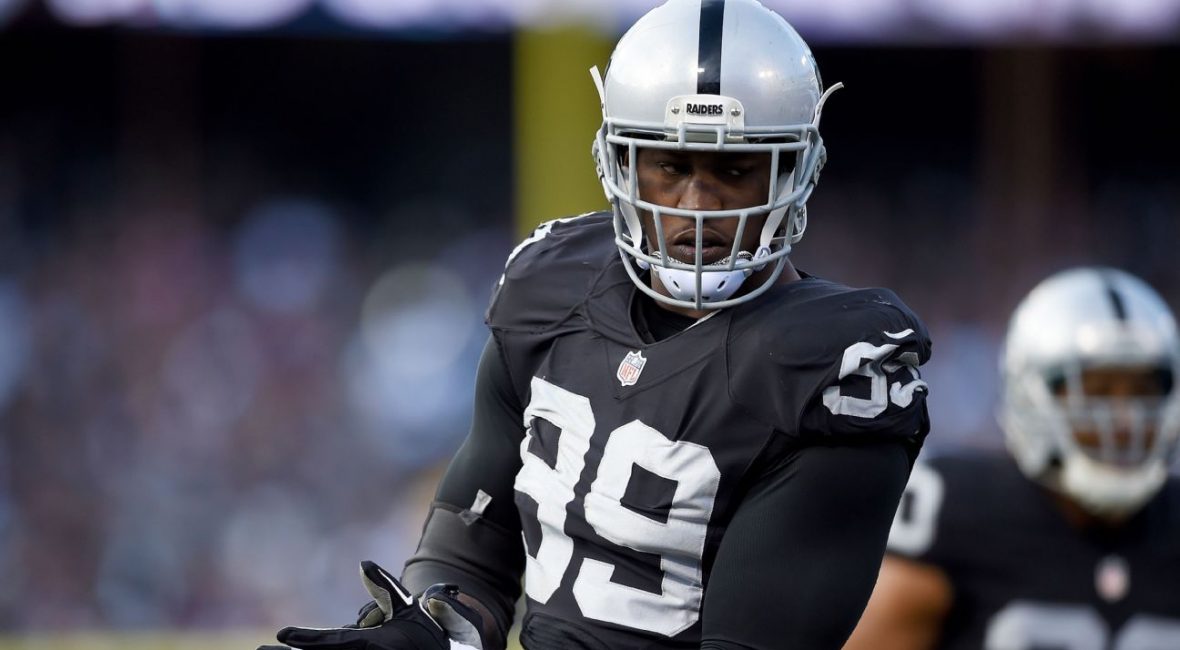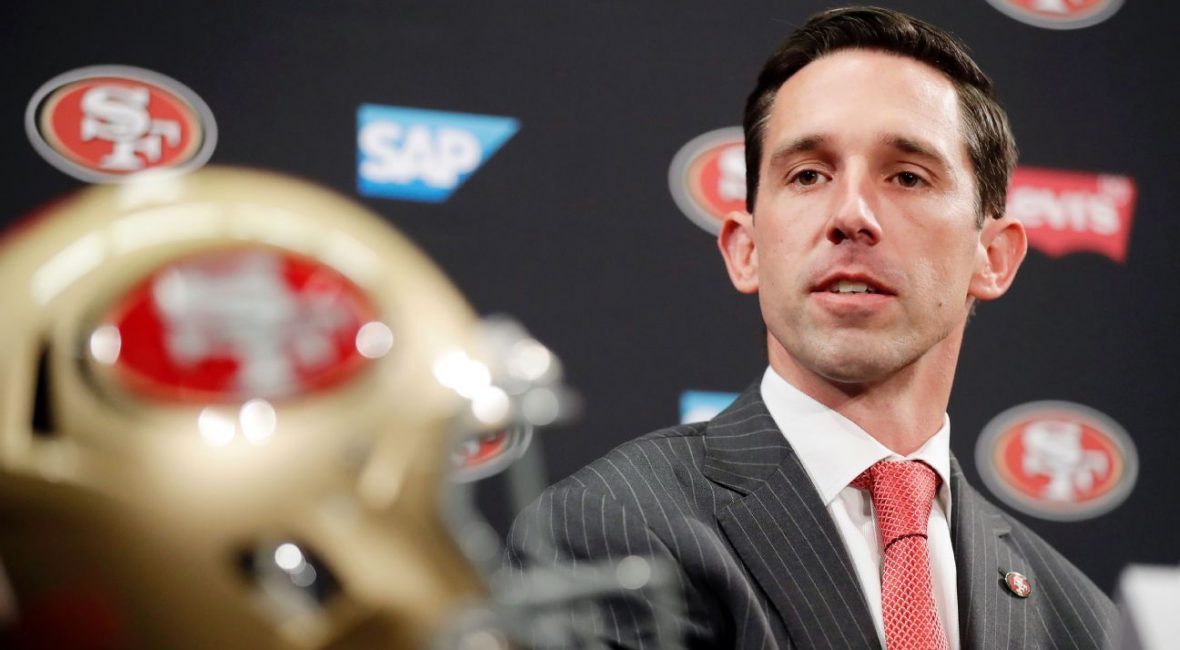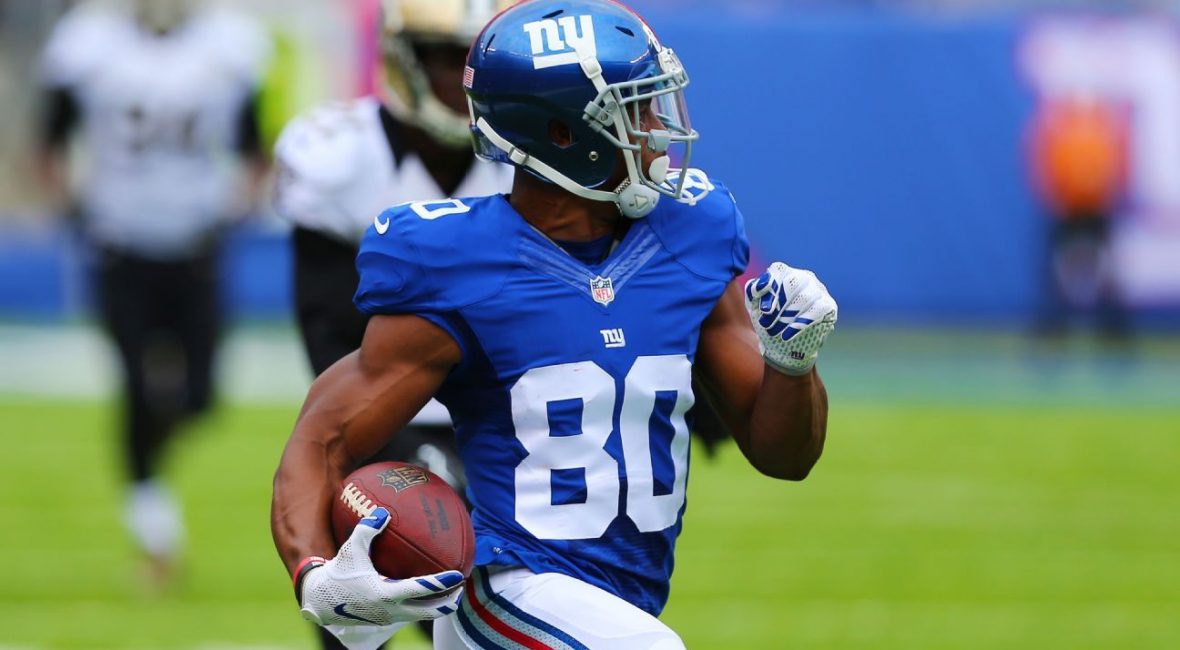ALAMEDA, Calif. — Oakland Raiders outside linebacker Aldon Smith, who missed the 2016 season as part of an NFL-mandated suspension, was mentioned in a report taken by the San Francisco Police Department for an incident that occurred over the weekend, police confirmed Monday.
Exact details of the report were not made public.
“He is cooperating with SFPD and the reporting party,” Officer Grace Gatpandan told ESPN.com. “The report was taken over the weekend and he was mentioned in the report.”
No arrests have been made.
TMZ Sports reported it was a domestic-related investigation earlier in the day.
The Raiders declined to comment to ESPN.com, though the team is forbidden from having any contact with Smith under the rules of the player’s suspension, which was handed down in November 2015 after several incidents that included arrests and a substance abuse infraction.
Raiders owner Mark Davis has taken a strong stance against cases of domestic violence, saying the team has a “zero-tolerance” policy.
“It’s just something we can’t tolerate,” Davis told the San Francisco Chronicle in 2015. “I don’t know how to fix it in society but I know we can’t have it on our team.”
Raiders Hall of Fame receiver Fred Biletnikoff lost his daughter Tracey in 1999 when an ex-boyfriend killed her, and the Raiders have been supporters of Biletnikoff’s mission to provide a home for women in need. Davis presented Biletnikoff with a check for $50,000 in 2015.
Smith applied for reinstatement this fall but the league tabled discussion to this offseason. The NFL Network reported Smith could be reinstated in March, so long as he stays out of trouble.
“I’m back,” Smith said last week on Instagram Live. “And there’s nobody who can stop me.”
Answering questions from viewers, Smith said, “You already know it. Raider Nation, we got this (stuff).”
Should Smith gain reinstatement, he would be able to join the Raiders and reigning NFL defensive player of the year Khalil Mack for the start of their offseason program, which is scheduled to begin on April 17. Rookie minicamp is scheduled for May 5-7 with OTAs on May 23-25, May 30-June 1 and June 5-June 8. Mandatory minicamp is scheduled for June 13-15.
Smith, the No. 7 overall pick of the 2011 draft by the San Francisco 49ers, has 47.5 sacks in 59 career games. He was released by the Niners in August of 2015 after his .
The 49ers released Smith, the No. 7 overall pick of the 2011 draft, in August 2015 after an arrest — his fifth since 2011 with his third involving DUI — and he signed with the Raiders. This latest suspension was handed down after nine games of the 2015 season.
A video of a man purportedly holding a blunt on a Periscope video account belonging to Smith showed up last offseason, though Smith initially denied it was him.
Raiders coach Jack Del Rio said he was “a little disappointed” late this past season after the league declined to reinstate Smith.
“Obviously, it’s not my job to make a rule, but from everything I’ve gathered, he’s done his duty to take care of all the things he needs to take care of,” Del Rio said.
“I see some of the guys that have been allowed back. My question is what’s the difference? It’s always a question mark. If a guy has a chance, he should have a chance to make a living.
“I don’t really agree with what’s gone down, but it’s not my job. We’ll move on as a team. That’s what we have to do, but I’m a little disappointed.”







